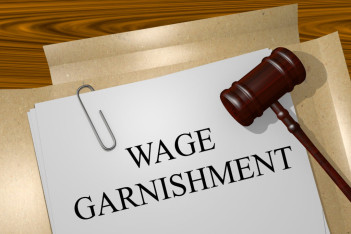Understanding Civil Litigation in Small Claims Court
Civil litigation often involves disputes between individuals or entities that require legal intervention to resolve. Among the various forums available for resolving such conflicts, Small Claims Court stands out as an effective, efficient, and inexpensive option for disputes involving amounts under $10,000. This article aims to provide a comprehensive understanding of the small claims court process, emphasizing the importance of preparation, the type of evidence required, and how to navigate the system effectively.
What is Small Claims Court?
Small Claims Court is a specialized legal venue designed for the expedited resolution of disputes involving relatively small amounts of money. Typically, these courts handle cases where the amount in controversy does not exceed a statutory limit, which, depending on the jurisdiction, is often set at $10,000 or less. The primary goal of Small Claims Court is to provide a simple, fast, and cost-effective way for people to resolve their disputes without the need for extensive legal representation or complex procedures.
Types of Cases Handled in Small Claims Court
The kinds of disputes that Small Claims Court typically hears include, but are not limited to:
- Breach of contract claims involving amounts under $10,000;
- Property damage claims;
- Unpaid rent or security deposit disputes;
- Claims for unpaid loans or debts;
- Consumer complaints against businesses relating to faulty goods or services;
- Disputes over deposits or down payments;
- Other small monetary disputes between individuals or businesses.
Advantages of Using Small Claims Court
Choosing Small Claims Court over other courts has multiple advantages:
- Cost-Effective: Filing fees and associated court costs are generally lower than in higher courts, making it accessible for individuals on a budget.
- Simplified Procedures: The process is streamlined to accommodate non-lawyers, reducing the need for legal counsel.
- Quick Resolution: Cases often reach conclusion much faster compared to traditional civil litigation.
- Informal Environment: Procedures are relaxed, and judges encourage direct communication between parties.
- Empowerment: Individuals have the opportunity to represent themselves without the intimidation of formal courtroom settings.
Preparing for Your Case in Small Claims Court
Success in Small Claims Court greatly depends on preparation. Here are several critical steps to take before your hearing:
- Gathering Evidence: Assemble all relevant documents, such as contracts, receipts, photographs, invoices, correspondence, and any written agreements. Physical evidence, where applicable, can also be crucial.
- Organize Your Facts: Clearly lay out the timeline and facts of your case. Prepare a concise summary explaining what happened, why you are entitled to compensation or relief, and the amount you are seeking.
- Identify Witnesses: If witnesses can support your claims or observations, ensure they are willing to attend court and provide testimony.
- Understand Court Procedures: Familiarize yourself with the court’s filing requirements, deadlines, and hearing processes to avoid procedural errors.
- Practice Your Presentation: Rehearse explaining your case calmly, factually, and confidently. Small Claims Court judges focus on facts over emotions.
The Role of Evidence in Small Claims Court
Evidence is the backbone of any legal dispute. In Small Claims Court, the judge’s decision hinges entirely on the evidence presented. Unlike higher courts, where complex legal arguments might take precedence, here the judge emphasizes the actual facts. Thus, presenting clear, relevant, and organized evidence can significantly increase your chances of success.
Typical evidence includes:
- Written contracts or agreements;
- Receipts for payments made or owed;
- Photographs documenting damages or the subject of the dispute;
- Correspondence such as emails or letters supporting your claim;
- Statements from witnesses;
- Bank statements or financial records.
Providing multiple forms of corroborative evidence creates a stronger, more credible case.
How to File a Case in Small Claims Court
Filing a case in Small Claims Court is generally a straightforward process that involves several steps:
- Determine if your claim qualifies for Small Claims Court based on the amount and type of dispute.
- Complete the necessary paperwork, which usually includes a complaint or claim form stating the details of your case and the relief sought.
- Pay the filing fee, which varies by jurisdiction.
- Serve the defendant with notice of the lawsuit according to court rules.
- Prepare for your hearing by gathering evidence and making a clear case.
Attending the Hearing
On the hearing day:
- Arrive early to court and bring all your evidence neatly organized.
- Dress appropriately and be respectful to court staff and the judge.
- Listen carefully and speak clearly when it is your turn.
- Focus on presenting the factual basis of your case rather than emotional appeals.
- Answer any questions the judge or opposing party might have honestly and succinctly.
The judge will typically make a decision after hearing both sides, sometimes immediately or after taking time to review the evidence.
Limitations of Small Claims Court
While Small Claims Court offers many advantages, it also has limitations that litigants should consider:
- The maximum claim amount limits the court's jurisdiction.
- The judge’s decisions may have limited grounds for appeal.
- Complicated cases involving multiple parties or complex legal issues might be unsuitable.
- Enforcement of judgments sometimes requires additional legal steps.
When to Seek Legal Assistance
Although Small Claims Court is designed to be accessible without lawyers, there are scenarios when legal advice can be invaluable. For instance:
- When the legal issues are complex;
- If you are unfamiliar with court processes and procedure;
- To ensure all documents, claims, and evidence meet legal standards;
- To help enforce the judgment if the opposing party refuses to comply;
- When negotiation or settlement discussions are involved.
For professional assistance, you can contact our team directly through the communications provided in the bio or send a private message. Our consultants are ready to provide you with the proper legal help needed to navigate civil litigation in Small Claims Court successfully.
Final Thoughts on Civil Litigation in Small Claims Court
Civil litigation for claims under $10,000 does not have to be a complicated or expensive endeavor. Small Claims Court enables parties to resolve disputes efficiently, focusing on facts rather than legal formalities or emotions. The key to winning in this court lies heavily in thorough preparation — gathering strong evidence, organizing your facts, and understanding court procedures. Luck plays no role here; preparation is paramount.
Legal Marketplace CONSULTANT — your trusted partner in navigating the complexities of civil litigation and Small Claims Court. Our expert consultants offer guidance, support, and professional services to ensure your case is handled promptly and effectively.
Small Claims Court offers a practical, accessible forum for resolving civil disputes under $10,000. The advantages of speed, low cost, and simplified procedures make it a preferred choice for many individuals and small businesses. By focusing on factual evidence and meticulous preparation, litigants can confidently present their case even without legal representation. However, when complexity arises, seeking professional legal assistance ensures you are fully equipped to protect your interests and achieve a favorable outcome.































